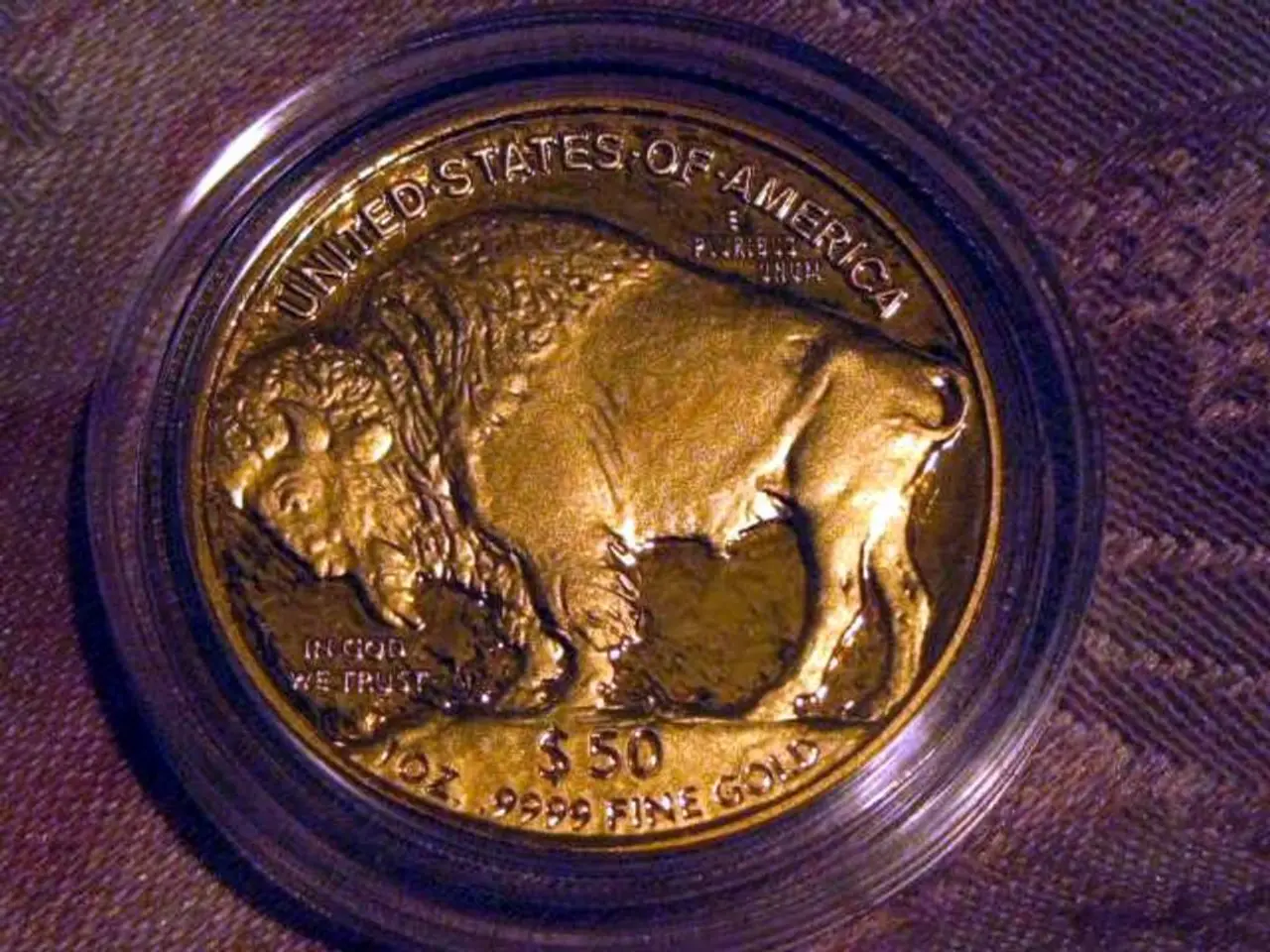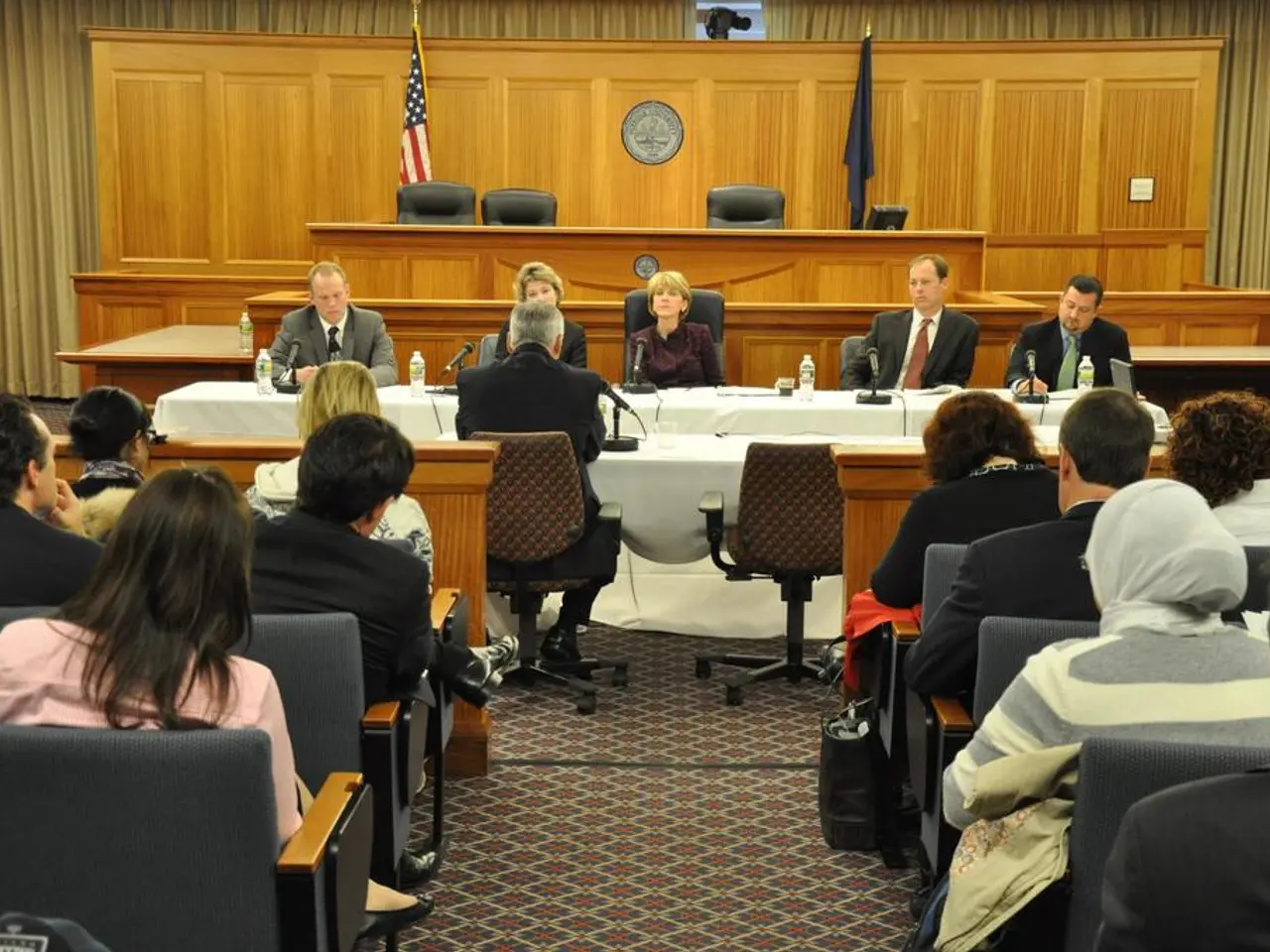Cryptocurrency Enthusiasts Seeing Major Profits Amidst Trump Era
In the six months since President Donald Trump's return to the White House, the cryptocurrency industry has seen a surge in value and increased regulatory activity, but not without controversy.
Trump himself and his family have become personally involved in the cryptocurrency industry, launching and promoting meme coins such as the $Trump coin and $Melania coin. While these coins have seen significant market value, they have also raised ethical and legal concerns, including potential violations of the Constitution's foreign emoluments clause due to foreign governments possibly buying the coins.
On the regulatory front, the administration exhibits deregulatory ambitions in the cryptocurrency space. Various agencies under the Trump administration have been directed to take broad actions concerning cryptocurrency, including movements toward policies that reduce regulatory burdens relative to prior administrations. However, specific new laws or formal legislation passed by Congress under Trump are not highlighted in the sources.
The Trump administration mandates an institutional approach to Bitcoin acquisition by the U.S. government. The Treasury and Commerce Departments have been ordered to acquire new Bitcoin in a way that does not burden taxpayers, creating a “Strategic Bitcoin Reserve” separate from other digital assets. This initiative is assertive, with the digital assets director stating the intent to purchase “as many bitcoins as possible,” reflecting a pro-Bitcoin institutional stance within the government.
The crypto market is now worth $3.4 trillion, up from less than $1 trillion at the start of 2023. Notably, the Senate has passed the Genius Act, which legalizes and regulates stablecoins. Bitcoin is currently trading just below $111,000, a new all-time high.
However, the industry's growth has not been without its challenges. Thousands of new cryptocurrencies launch every month, some of which are scams leading to significant losses. According to the FBI, there were reported losses of $5.8 billion due to crypto scams in 2024.
The Federal Housing Finance Agency is exploring whether crypto assets like Bitcoin can count as proof of wealth in mortgage applications. Meanwhile, the Department of Justice has seized $225 million linked to "pig butchering" schemes, a long-con scam that drains victims over time using fake crypto investments.
Despite these challenges, the crypto industry is currently stronger and richer than ever, with Wall Street once again active in the sector. Notably, Gary Gensler, the Biden-era regulator who was loathed by the crypto industry, has been replaced by Paul Atkins, who vows to create clear and rational rules for custody, issuance, and fraud enforcement. Atkins also supports self-custody, allowing people to keep their crypto in private wallets outside banks.
Moreover, Trump not only praises the crypto industry, but his sons also actively invest in it, including tokens and mining operations. The crypto industry has also been a significant financial supporter of Trump's presidency.
As the Trump administration continues its second term, the cryptocurrency industry will likely remain a topic of interest, with ongoing regulatory discussions, personal ventures by Trump, and continued growth in the market.
- Gizmodo: As the Trump administration embarks on its second term, the future of tech and politics is set to intertwine further, with the cryptocurrency industry expected to remain a focus of debate, particularly in regards to regulatory decisions and personal ventures by President Trump and his family.
- General-news: Amidst the growth of the crypto market, reaching a staggering $3.4 trillion, the industry faces challenges such as the proliferation of scams, with the FBI reporting $5.8 billion in losses due to crypto scams in 2024, but also positive developments like the legalization and regulation of stablecoins.
- Technology: In line with the deregulatory ambitions of the Trump administration, the Treasury and Commerce Departments have been ordered to acquire Bitcoin, creating a "Strategic Bitcoin Reserve" and reflecting a pro-Bitcoin institutional stance within the government, signifying the evolving role of technology in politics and general news.








